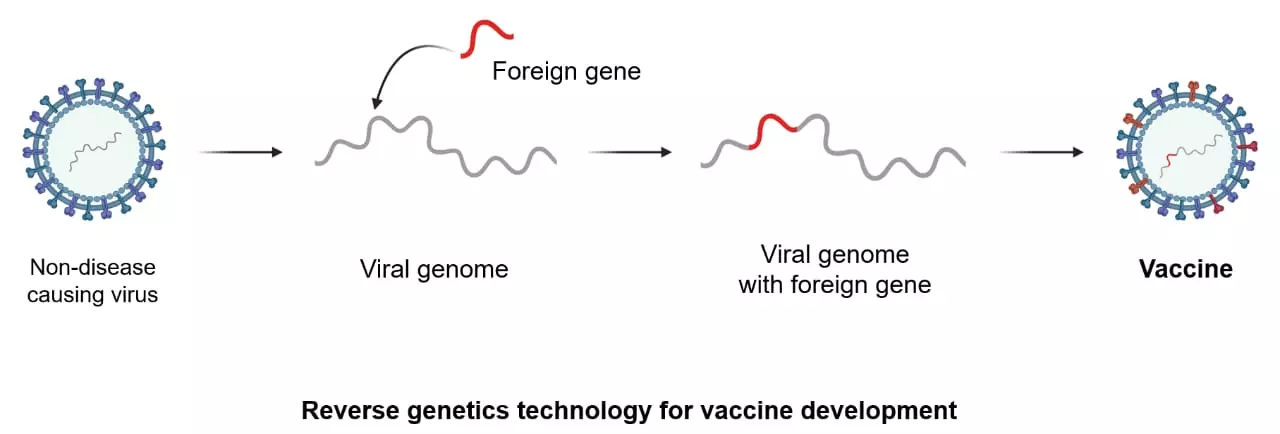IIT Guwahati completes technology transfer to roll out the first recombinant vaccine for Swine Fever Virus
This groundbreaking vaccine marks the first recombinant virus-based solution for classical swine fever developed in India, offering a swift and cost-effective method for pig vaccination

GUWAHATI: Indian Institute of Technology Guwahati successfully transferred a pioneering vaccine technology to BioMed Pvt. Ltd., a leading manufacturing company specializing in high-quality vaccines. This technology entails a recombinant vector vaccine designed specifically for combating the classical swine fever virus in pigs and wild boars, filling a significant gap in India's vaccine landscape.
This first recombinant virus-based vaccine for pigs harnesses a reverse genetic platform pioneered and refined at IIT Guwahati. Swine fever, a highly contagious disease among pigs, poses a severe threat with a very high mortality rate, although it does not affect humans. In India, instances of this disease have been frequently observed in northeastern states, as well as in Bihar, Kerala, Punjab, Haryana, and Gujarat, among others.
The vaccine work was started in 2018-2019 through collaborative efforts between researchers from the Department of Biosciences and Bioengineering at IIT Guwahati, and Assam Agricultural University in Guwahati. Their research findings have been published in two papers, featured in Process Biochemistry and Archives of Virology journals.
(DOI:
https://doi.org/10.1016/j.procbio.2017.12.001
https://doi.org/10.1007/s00705-019-04425-4)
This vaccine is being created and produced for the first time in India. The disease poses a significant threat to India's pig industry, and currently, there is no available vaccine. Transferring the vaccine technology to one of the leaders in the veterinary vaccine sector marks a remarkable achievement.
Reverse genetics stands as a potent method and tool for the development of vaccines targeting both animal and human diseases. The technology has been widely used to develop vaccines against influenza.
In an intriguing approach, researchers have utilized the Newcastle disease virus (NDV), traditionally studied for its pathogenicity in chickens, as a carrier for the essential proteins of the classical swine fever virus. This innovative method facilitates the development of immunity in the body and is characterized by its speed and cost-effectiveness.
At present, the vaccine is under the process of filing test and analysis licence.
This advancement is crucial in curbing the spread of this incurable disease among pigs across breeding farms in India, particularly in the northeast, where cases have been rampant in recent years.
###
ABOUT IIT GUWAHATI
Indian Institute of Technology Guwahati, established in 1994, completed 25 years of glorious existence in 2019. At present, the Institute has eleven departments, nine interdisciplinary academic centres and five schools covering all the major engineering, science, healthcare, management, and humanities disciplines, offering BTech, BDes, BSc(Hons), MA, MDes, MTech, MSc, MS(R), MBA and PhD programmes. The institute offers a residential campus to 439 faculty members and more than 8,600 students at present.
IIT Guwahati has retained the 7th position among the best engineering institutions of the country and 9th position in both ‘Overall’ and ‘Research’ Categories in the ‘India Rankings 2023’ declared by the National Institutional Ranking Framework (NIRF) of the Union Ministry of Education.
IIT Guwahati has achieved rank 6 in the SDG 7 (Affordable and clean energy) globally in the Times Higher Education (THE) Impact Rankings 2023 and is the only academic institution in India that occupied a place among the top 100 world universities – under 50 years of age – ranked by London-based Times Higher Education (THE) in 2014 and continues to maintain its superior position even today in various International Rankings. IIT Guwahati gained rank 32 globally in the ‘Research Citations per Faculty’ category and overall 364 rank in the QS World University Rankings 2024.
Among other frontier areas of research and innovation, IIT Guwahati is working towards augmenting critical science research initiatives in Genomics, Developmental Biology, Health Care and Bioinformatics and Flexible Electronics, among numerous other areas.

